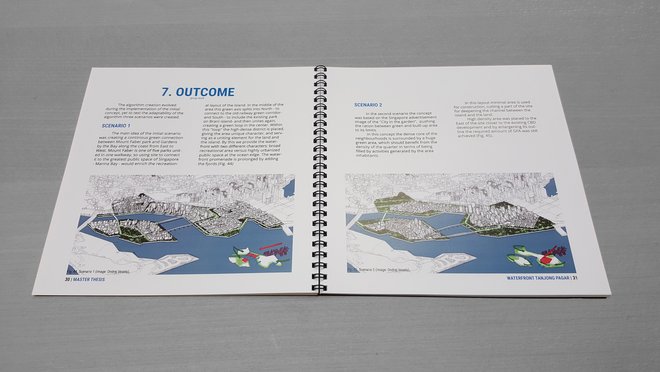Collection of semiars and its results from past semesters
The teaching results are documented on our online teaching platform (OTP):
https://otp.uni-weimar.de/results/
on the OTP you find results from seminars, design studios, and thesis that are supervised by the professorship Computational Architecture.

In the SS 2018 the professorship offers the elective course
Applied System Dynamics for Urban Modeling and Simulation.
The participants of this seminar are introduced to advanced urban modeling and simulation techniques based and system dynamics methods. We deal with the modeling of complex spatial systems on the regional and urban level. In this context computational analysis methods for urban fabric (e.g. for pedestrian movement or economic potentials) and models for computing interactions between land uses are introduced. By means of system dynamics models we can simulate temporal changes of stocks and flows.
The learned skills are applied in the Rural Urban Metabolism (RUD) project for planning new towns in Ethiopia. It’s expected that the participants have absolved the course “Introduction to System Dynamics for Modeling Urban Metabolism” from the previous semester.
Bison Link || Veranstaltungsnummer: 118123301
Please inscribe to the course via this moodle website:
https://moodle.uni-weimar.de/course/view.php?id=3781
Schedule
The course take place in the computer pool and is organized in blocks. The detailed schedule is provided on the moodle page!
______________________________________________________
In the SS 2018 there is also the 3 CP course Advanced Computational Methods
Requirement for choosing this seminar is the parallel of past participation of an introductionary course by the professrhip, or good programming skills. In this seminar the programming skills and their application are enhanced.
The main idea of this course is to offer an extension of the Introduction course by an individual semester project. The semester performance it the definition and implementation of a self-defined task, which exemplifies the skills that are learned during the seminar.
Please contact Prof. König before inscribing in the course!
Special Price for the Master Thesis of Iuliia Osintseva
Congratulationns to Iuliia Osintseva for the Special Price of the Faculty of Architecture and Urbanism of the Bauhaus-University Weimar for her Master Thesis about the Waterfront Tanjong Pagar district in Singapore. The thesis started as a collaboration with Ondřej Veselý and Kateryna Konieva. See the project documentation in this video:
Procedural Masterplanning for Waterfront Tanjong Pagar from InfAR (Bauhaus Weimar) on Vimeo.
Master Thesis by Iuliia Osintseva
Great Master Thesis that developed a procedural urban master planning and design for the Waterfront Tanjong Pagar district in Singapore. Download Pdf.
Very impressive results of the SynCityII urban design class led by InfAR 2016/17, supported by Computational Architecture
SYNCITY2020 | Parametric Masterplanning - Students projects compiled from InfAR (Bauhaus Weimar) on Vimeo.
Wonderful video documentation of the SynCity urban design class led by InfAR 2016, supported by Computational Architecture

In the WS 2017/18 the professorship offers the elective course Introduction to System Dynamics for Modeling Urban Metabolism.
The participants of this seminar are introduced to System Dynamics Methods. We deal with the modeling of complex spatial systems on the regional and urban level. In this context computational analysis methods for urban fabric (e.g. for pedestrian movement or economic potentials) and models for computing interactions between land uses are introduced. By means of system dynamics models we can simulate temporal changes of stocks and flows.
The learned skills are shown by several exercises. No technical previous knowledge is required.
Please inscribe to the course via this moodle website: moodle.uni-weimar.de/course/view.php
The inscription key is "generative".
Schedule
The following seminars are on the following Wednesdays from at 13:30 - 17:00 in the computer pool:
first meeting: 11.10.2017, 13:30 - 15:00 // Introduction
The course is organized in blocks. The detailed schedule is provided on the moodle page!
______________________________________________________
In the WS 2017/18 there is also the 3 CP course Advanced Computational Methods
Requirement for choosing this seminar is the parallel of past participation at the course Introduction to System Dynamics for Modeling Urban Metabolism, or good programming skills. In this seminar the programming skills and their application are enhanced.
The main idea of this course is to offer an extension of the Introduction course by an individual semester project. The semester performance it the definition and implementation of a self-defined task, which exemplifies the skills that are learned during the seminar.
Please contact Prof. König before inscribing in the course!

In the SS 2017 the professorship offers a project module Introduction to Generative Urban Models.
The participants of this seminar are introduced to Generative Urban Models. We deal with the implementation of methods for generating and analyzing various spatial configurations. The learned skills are shown by several exercises. The exercises may be linked to other design studios.
Basic knowledge programming as well as in Grasshopper for Rhino3D is of advantage for this course. The latter one you can get in a corresponding parallel course at InfAR.
Please inscribe to the course via this moodle website:
comming soon
The inscription key is "generative".
Please, also have a look at the results from past semesters here!
Schedule
The following seminars are on the following Wednesdays from at 9:15 - 12:00 in the computer pool:
first meeting: 12.04.2017 // Introduction to C#-Scripting
tbd // DecodingSpaces Synthesis Components
tbd // Introduction to Optimization
tbd // Applications & Sonsultations
______________________________________________________
In the SS 2017 there is also the 3 CP course Advanced Computational Methods
Requirement for choosing this seminar is the parallel of past participation at the course Introduction to Generative Urban Models, or good programming skills. In this seminar the programming skills and their application are enhanced.
Contentwise we deal with the combination of various spatial analysis methods with evolutionary algorithms for the optimization of certain urban planning aspects. The semester performance it the definition and implementation of a self-defined task, which exemplifies the skills that are learned during the seminar.
Summer Semester 2016

In SS 2016 the professorship offers a project module Computational Urban Design assigned to the project SynCity by InfAR. Students who do not participate at the SynCity project may define an individual task.
Goal
In this seminar we extend provided components for Grasshopper/Rhino3D by using scripting languages. The goal is to control the synthesis of new urban designs by your own algorithms.Furthermore you get skills to extend the given Grasshopper components by your own ones and to develop an advanced level of algorithmic design thinking.
Content
In the beginning there is an introduction to programming. We explore scripting techniques for Grasshopper/Rhino3D by using scripting components for C# or Python. In the second part of the seminar your are introduced to optimization techniques, which allows you to synthesize designs with specific performance measures. Finally you develop your own project with a specific focus in the context of the SynCity project or for an individual topic.
You can get 3CP for submitting the homework tasks and another 3CP for an individual seminar project.
The lectures on Tuesdays start at 9:15 in the computer pool. The consultation on Thursday are flexible and can be arranged individually.
Please inscribe to the course via this moodle website:
https://moodle.uni-weimar.de/course/view.php?id=744
The inscription key is "Computational".
| Schedule | ||
| 26.04.2016 | Introduction to Scripting | Basic programming concepts |
| Using Grasshopper C# component | ||
| Homework task: | Customize given examples for variables, conditions/branches and loops etc. | |
| 28.04.2016 | Individual consultations | |
| 17.05.2016 | Applications | Custom rules for generating urban patterns |
| Homework task: | Implement own generative rules | |
| 19.05.2016 | Individual consultations | |
| 24.05.2016 | Optimization | Develop own fitness functions and chromosomes |
| Preparation for own project | ||
| Homework task: | Develop own optimization example and develop semester project | |
| 26.05.2016 | Individual consultations | |
| 21.06.2016 | Own project | Discussion of concepts for own semester project |
| 23.06.2016 | Individual consultations | |
| 12.07.2016 | Final presentation | Submission of written documentation |

